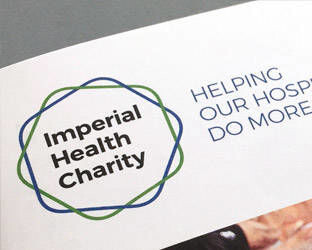Save Your Vein campaign launches website thanks to charity support
Save Your Vein campaign launches website thanks to charity support
24 April 2018

Funded by Imperial Health Charity, the site is helping to spread the word about the Save Your Vein campaign, which was founded by consultant transplant and vascular surgeon Jeremy Crane and GP registrar Christine Hall, who are based at Hammersmith Hospital.
The campaign aims to educate renal patients and healthcare professionals about vein preservation.
Preserving veins is particularly important for patients who require frequent blood tests, such as those with kidney disease or diabetes.
Co-founder Jeremy Crane said: "At Imperial we look after the biggest cohort of dialysis patients in the country, but in order to have a fistula patients need strong veins.
"We have found that there is a real lack of awareness about vein preservation nationwide - and that is why we have started this campaign."
The best way for renal patients to undergo haemodialysis is via a fistula, or 'super vein'. A fistula is a surgically-created connection between an artery and a vein most commonly in the arm or wrist. Many patients refer to their fistula as their lifeline.
The successful creation of a fistula relies on a number of factors, including that a patient has healthy and strong veins. But repeated blood tests and the insertion of intravenous lines results in veins becoming scarred and damaged. When this happens to the veins in the elbow or wrist it can mean that the creation of a fistula is more difficult or will be less likely to succeed. This deprives the patient of the best possible treatment.
Jeremy added: "This is a real breakthrough moment and potentially a world first for the Trust. Once patients start talking about vein preservation, it begins that early conversation about having a fistula. We also hope that patients who preserve their veins will go on to have a successful fistula, enabling thme to live longer and cope better with the demands of dialysis.
"Having a really good website is an integral part of getting this campaign out across the country and we are incredibly grateful to Imperial Health Charity for making it happen."
Imperial Health Charity awarded a grant of £5,000 to fund the development of the Save Your Vein website. To find out more about the campaign, visitwww.saveyourvein.org

